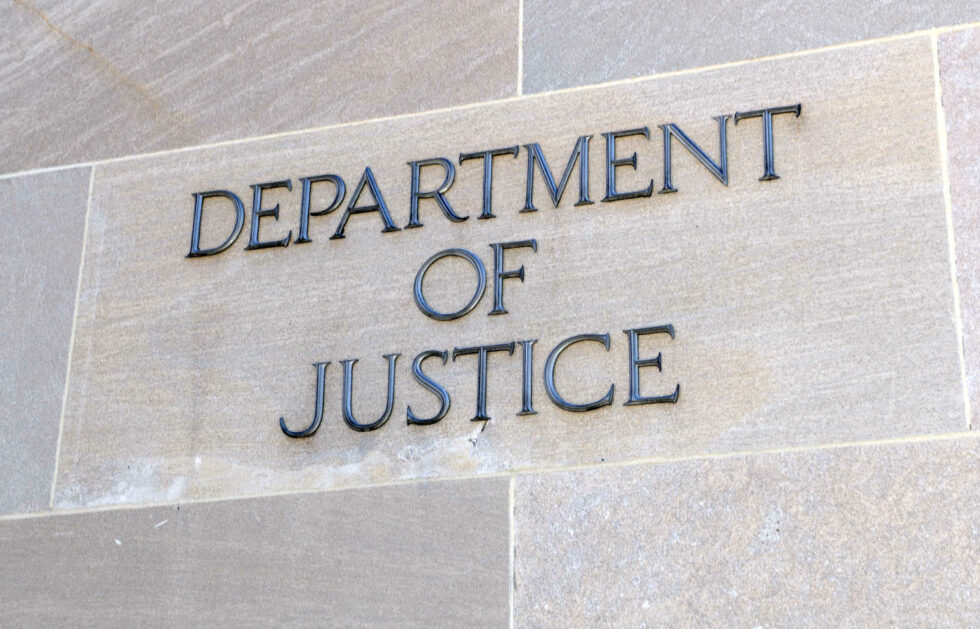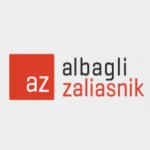
by Juan Manuel González | May 6, 2022 | Noticias-en
 On June 3, 2021, President Biden issued a memorandum declaring corruption as “a core United States national security
On June 3, 2021, President Biden issued a memorandum declaring corruption as “a core United States national security
interest” and directing interagency coordination to develop a presidential strategy to “significantly bolster the ability of the United States Government… to combat corruption.” The memorandum states that corruption contributes to extremism and migration and provides the necessary means for authoritarian leaders to undermine democracies and to threaten the rule of law. Days later, in connection with a visit to Mexico and Guatemala, Vice President Harris announced that the U.S. Department of Justice (DOJ) would increase its efforts against transnational bribery in Guatemala, El Salvador, and Honduras.
On July 1, Secretary of State Antony J. Blinken issued the list naming several individuals, including current and former government officials, suspected of corruption and antidemocratic conduct in Guatemala, El Salvador, and Honduras. Mr. Blinken referred to this list in compliance with section 353 of the United States-Northern Triangle Enhanced Engagement Act.1 This list – known as the “Engel list” for its author, former U.S. Representative Eliot L. Engel – is composed of 55 names:
- Guatemala: The list names 20 individuals, including high-ranking public officials who are currently in office or who served in previous periods. There is a former president, former ministers, current and former congressmen, magistrates of the country’s high courts, various lawyers, and leaders of non-governmental organizations.
- El Salvador: The list includes 14 names among which are high-ranking public officials, including members of the current government such as ministers, members of the Legislative Assembly, government advisers, a former member of the Supreme Elector Court, a former mayor, and some businessmen.
- Honduras: There are 21 individuals listed, most notably a former first lady, current and former congressmen, and a former director of Inversión Estratégica de Honduras (INVEST-H).
The Engel list is compiled based on an analysis by the Department of State of classified and non-classified information and a subsequent determination that the named individuals have (1) knowingly participated in actions that affect democratic processes or institutions, (2) have knowingly engaged in significant acts of corruption, and (3) have knowingly engaged in obstructing investigations of such acts of corruption, including those related to government contracts, bribery and extortion, facilitation payments, as well as money laundering, violence, harassment, and intimidation of investigators of
governmental and non-governmental corruption.2 As a result, the individuals named may face sanctions, including (1) ineligibility to receive visas or other documentation to enter the U.S., (2) ineligibility to be admitted or paroled into the United States or to receive any other benefit under the Immigration and Nationality Act (8 U.S.C. 1101 et seq.), and (3) revocation of current visas.3
What steps should businesses and investors take if they are associated with the people listed?
- Carry out a risk assessment focused on potential points of contact between your organization and the individuals listed.
- Evaluate all aspects of the relationship between your business and the relevant individual(s), including:
– Level of authority and influence toward or within your organization
– All points of contact, including involvement in transactions involving your organization
– Payments made to and received from the listed person
– Any business determinations or cases involving current or former government officials (e.g., pending cases with
judges or magistrates who have been enlisted).
- In the event compliance risks are identified, develop a plan for remediation and evaluate the need for further internal
investigation.
Additional information:
U.S. Releases Section 353 List of Corrupt and Undemocratic Actors for Guatemala, Honduras, and El Salvador – United States Department of State
Section 353 Corrupt and Undemocratic Actors Report – United States Department of State
For more information you can contact:

Jeffrey Lehtman | Socio Miller & Chevalier | jlehtman@milchev.com
1.The United States-Northern Triangle Enhanced Engagement Act passed in December 2020 (included in the omnibus appropriations and COVID-19
relief package) to support the people of Central America and strengthen the national security of the United States by addressing the fundamental
causes of migration from El Salvador, Guatemala, and Honduras (the Northern Triangle). In accordance with this law, strategies will be developed for economic development, to combat corruption and to deal with other problems in these countries.See All Information (Except Text) forH.R.2615 – United States-Northern Triangle Enhanced Engagement Act; U.S. House of Representatives Comm. on Foreign Aff., Engel U.S.-Northern Triangle Enhanced Engagement Act Passes Congress.
2. See Consolidated Appropriations Act of 2021, Pub. L. No. 116-260, § 353(b), 134 Stat. 1182, 3130 (2020).
3 Id. § 353(c)–(d), 134 Stat. at 3130–31.

by Juan Manuel González | Apr 27, 2022 | Noticias-en
 On March 22, Congress sent to the Executive the bill on computer crimes, which defines eight new criminal offenses, repealing the old law that governed this matter and adapting the regulations to the provisions of the Budapest Convention.
On March 22, Congress sent to the Executive the bill on computer crimes, which defines eight new criminal offenses, repealing the old law that governed this matter and adapting the regulations to the provisions of the Budapest Convention.
The new norm -which will come into effect once the law is enacted and published- penalizes various conducts, updating our regulations to the current reality and at the same time establishing the criminal liability of the legal person when these crimes are committed within an organization. that it has not implemented adequate models for the prevention of these crimes.
Indeed, the old Law No. 19,223, which has been in force since 1993, typifies criminal figures related to computing. it sanctioned only four types of conduct (computer sabotage, computer espionage, the disclosure and alteration of data) and was manifestly outdated. Thus, this new regulation covers these facts from a more adequate perspective, considering the advancement of technology and the possibilities of criminal behavior related to information technology.
In this sense, the penalty for computer fraud stands out in the first place, one of the most anticipated figures by legal operators to sanction scams committed through computerized means, such as fraud at bank tellers. In turn, improper access to computer systems and the receipt of computer data is sanctioned, this being one of the newest crimes, which punishes those who market, transfer or store computer data obtained through the commission of access crimes. illicit, interception or computer forgery.Additionally, computer forgery is typified, which includes the malicious introduction, alteration, deletion or suppression that generates inauthentic data with the purpose of making them pass as “authentic or reliable” by a third party. Another of the new crimes is illegal interception, which penalizes anyone who improperly intercepts, interrupts or interferes with non-public transmission between computer systems.
For its part, the abuse of devices punishes the facilitator of technological means and computer tools that are suitable for committing the crimes of attacks on systems and data, illegal access and computer interception, as well as for the perpetration of conduct. Finally, the attack on the integrity of a computer system and the attack on the integrity of computer data are penalized.
One of the controversial aspects of the bill was the restriction imposed on ethical hacking, since the crime of improper access was typified in a general way, allowing the violation of computer systems only with the authorization of its owner. Thus, unauthorized access, even when performed for the ethical purpose of identifying failures in computer systems and reporting them to the owner for repair, constitutes conduct sanctioned by the legislator.
In consideration of this new regulation, it is recommended that companies carry out a risk assessment and adapt their crime prevention model in order to implement the appropriate mitigation measures to reduce the risk of committing these acts within them.
For more information and advice on the adaptation of crime prevention models for the incorporation of these new legal risks, you can contact:
Jaime Winter | Director Criminal Litigation Group | jwinter@az.cl
Eduardo Anguita | Corporate Group Director | eanguita@az.cl
Sofia Reizin | Associate | sreizin@az.cl
Florence Fuentealba | Associate | ffuentealba@az.cl

by Juan Manuel González | Apr 25, 2022 | Noticias-en
 On May 16, 2013, Law No. 12,813/2013 (“Conflict of Interests Act”)[1] was enacted regulating conflict of interests arising from the relations with government officials of the Federal Executive branch. In particular, Article 5, Item IV, of the Conflict of Interests Act establishes that a conflict of interests emerges when a government official “acts, informally or not, as attorney-in-fact, consultant, advisor or intermediary of private interests in the public bodies or government entities of the public administration, direct or indirect, from Federal, State and City levels and the Federal District”.[2]
On May 16, 2013, Law No. 12,813/2013 (“Conflict of Interests Act”)[1] was enacted regulating conflict of interests arising from the relations with government officials of the Federal Executive branch. In particular, Article 5, Item IV, of the Conflict of Interests Act establishes that a conflict of interests emerges when a government official “acts, informally or not, as attorney-in-fact, consultant, advisor or intermediary of private interests in the public bodies or government entities of the public administration, direct or indirect, from Federal, State and City levels and the Federal District”.[2]
To shed light to the scope of application of Article 5 aforementioned, Decree No. 10,889/2021[3] (“Decree”) was – recently – enacted in December 2021. According to the Decree,[4] federal governments officials are allowed to receive hospitalities from private players, including meals, as long as a few criteria are fulfilled, such as: (i) the specific public body or government entity to which the official is subject should allow (or not expressly prohibit) the receival of hospitalities; (ii) the hospitality should be directly related to legitimate interests’, as well as occur under appropriate circumstances of professional interaction; and (iii) the hospitality’s value should be compatible with the standards adopted by the federal public administration in similar occasions. Lastly, it should not characterize personal benefit for the government official.
Regarding the specifics of each public body or government entity, it is worth mentioning the standards provided by Code of Conduct of the Federal Administration (“Code of Conduct”),[5] which are most commonly reflected. The Code of Conduct is applicable to ministers and secretaries of state; individuals holding high ranked positions in the federal government, presidents and directors of federal agencies, independent government agencies, public funded foundations, public companies, and mixed-capital companies.[6]
The Code of Conduct sets forth that “the public authority shall not receive salary or any other type of income from a private source forbidden by the law, nor receive transportation, travel expenses or any kind of favors from private entities which could raise doubts about the public authority’s probity or honorability”.[7] Thus, provided that the “courtesy” does not raise distrust on the government officials’ integrity, the Code of Conduct allows such hospitalities.
We identified one ruling by the Office of Comptroller-General involving the offering of meals to government officials.[8] The restaurant chain Madero was found guilty of having paid undue advantages to inspectors of the Ministry of Agriculture, Livestock and Food Supply by means of cash and meals. Nonetheless, no further details were made available by the Office of Comptroller-General, providing no clarifications onto the criteria for hospitalities to government officials.
The Office of Comptroller-General also published the “Integrity Program: Guidelines for Legal Entities”,[9] where it outlines standards for companies to implement effective integrity programs. Regarding the policy on offering hospitalities, freebies, and gifts, the Office of Comptroller-General understands that companies should bear in mind the following:
- “Offering freebies, gifts and hospitality cannot be associated with the intention to obtain undue gains for the company, to compensate for a contract awarded or characterize an implicit or explicit exchange of favors or benefits;
- Before offering any type of hospitality, freebies or gifts, the employee or representative must ensure that his or her act complies with the local rules and the legislation regarding transnational bribery (i.e.: FCPA, UK Bribery Act, Brazilian Anti-Corruption Law) and the policies and internal rules of the legal entity of the person who will receive the hospitality, freebie or gift;
- Expenses must be reasonable and in accordance with the local legislation, the limits of which must be stipulated by the company itself;
- No type of hospitality, gifts or presents may be provided with unreasonable frequency or to the same receiver in a way that may suggest suspicion or impropriety;
- Invitations involving travel and related expenses must be clearly associated with the company’s activities whether to promote, show or present products and services or to enable the performance of potential contracts;
- Indicators must be created for the employee himself/herself to be able to develop his/her critical ability to assess how reasonable it would be to propose a given action regarding hospitality or an offer of gifts or presents. For example, employees can be guided by a basic list of questions: (i) what is the intention involved?; (ii) Besides promoting the company’s business, does the action involve anything that should be kept in secrecy?; (iii) Would reporting the situation to the external public – for example, as a news article of a high circulation newspaper – represent a drawback to the company?; and (iv) Would the company be misinterpreted? and
- Employees or representatives must be told who in the company they should turn to should they have any questions about practical situations involving hospitality, freebies or gifts”. (emphasis added).
Although no explicit and unequivocal value standard is provided, three conclusions can be drawn from the guidelines above. First, that the reasonableness of the hospitality’s expenses should be perceived within the context in which it occurs, giving companies room for determining the precise amounts. Second, that the frequency of such hospitalities is also relevant, which means that a one-off meeting would hardly be construed as improper per se. And finally, that the hospitality should be intended to foster the companies’ business activities.
From all the above, we understand that prior to offering any kind of hospitality to government officials, companies should assess whether the criteria set forth in the Decree were observed. Although Brazilian legislation and regulation do not provide crystal clear guidelines on which hospitalities would violate the Brazilian Anti-Corruption Law, the Office of Comptroller-General’s standards allow companies to have a more precise course of action, offering hospitalities, including meals, that: (i) accommodate with the circumstances where they are intended to occur; (ii) are not frequent; and (iii) pursue the company’s business purposes.
[1] BRAZIL. Law No. 12,813, May 16, 2013. Available at: L12813 (planalto.gov.br)
[2] In Portuguese, “Art. 5º Configura conflito de interesses no exercício de cargo ou emprego no âmbito do Poder Executivo federal: (…) IV – atuar, ainda que informalmente, como procurador, consultor, assessor ou intermediário de interesses privados nos órgãos ou entidades da administração pública direta ou indireta de qualquer dos Poderes da União, dos Estados, do Distrito Federal e dos Municípios;”.
[3] BRAZIL. Decree No.10,889, December 9, 2021. Available at: Decreto nº 10.889 (in.gov.br)
[4] In Portuguese, “Art. 19. As hospitalidades de que trata o inciso V do caput do art. 5º poderão ser concedidas, no todo ou em parte, por agente privado, desde que autorizado no âmbito do órgão ou da entidade. § 1º A autorização a que se refere o caput observará: I – os interesses institucionais do órgão ou da entidade; e II – os riscos em potencial à integridade e à imagem do órgão ou da entidade. § 2º Os itens de hospitalidade: I – devem estar diretamente relacionados com os propósitos legítimos da representação de interesses, em circunstâncias apropriadas de interação profissional; II – devem ter valor compatível com: a) os padrões adotados pela administração pública federal em serviços semelhantes; ou b) as hospitalidades ofertadas a outros participantes nas mesmas condições; e III – não devem caracterizar benefício pessoal. § 3º A concessão de itens de hospitalidade poderá ser realizada mediante pagamento: I – direto pelo agente privado ao prestador de serviços; ou II – de valores compensatórios diretamente ao agente público, sob a forma de diárias ou de ajuda de custo, desde que autorizado pela autoridade competente”.
[5] BRAZIL. Code of Code of Conduct of the Federal. Available at: Code of Conduct; and Guidelines for the relationship with the Public Sector by the Brazilian Institute of Business Law and Ethics, page 11. Available at: Guidelines for the relationship with the Public Sector IBDEE
[6] In Portuguese, “Art. 2º As normas deste Código aplicam-se às seguintes autoridades públicas: I – Ministros e Secretários de Estado; II – titulares de cargos de natureza especial, secretários-executivos, secretários ou autoridades equivalentes ocupantes de cargo do Grupo-Direção e Assessoramento Superiores – DAS, nível seis; III – presidentes e diretores de agências nacionais, autarquias, inclusive as especiais, fundações mantidas pelo Poder Público, empresas públicas e sociedades de economia mista”.
[7] In Portuguese, “Art. 7º A autoridade pública não poderá receber salário ou qualquer outra remuneração de fonte privada em desacordo com a lei, nem receber transporte, hospedagem ou quaisquer favores de particulares de forma a permitir situação que possa gerar dúvida sobre a sua probidade ou honorabilidade”.
[8] BRAZIL. Office of Comptroller-General. Proceedings No. 00190,105384/2018-01. Defendant: Madero Indústria e Comércio S.A. Plaintiff: Office of Comptroller-General. President of Commission: Antônio Augusto Sousa Fernandes. Brasília, September 15, 2020. Available at: Ruling by the Office of Comptroller-General (in.gov.br)
[9] Integrity Program: Guidelines for Legal Entities. Available at: Integrity Program: Guidelines for Legal Entities
For more information contact to:

Eloy Rizzo | Socio Demarest | erizzo@demarest.com.br
Gustavo Chimure Jacomassi | Asociado Demarest | gjacomassi@demarest.com.br

by Juan Manuel González | Apr 19, 2022 | Noticias-en
 During September 2021, Law No. 21,369 was published in the Official Gazette of Chile, which regulates sexual harassment, violence and gender discrimination in the field of Higher Education. This responds to the different demonstrations that have been carried out, in recent years, in the different study houses throughout the country, in which protocols and sanctions were required in these cases.
During September 2021, Law No. 21,369 was published in the Official Gazette of Chile, which regulates sexual harassment, violence and gender discrimination in the field of Higher Education. This responds to the different demonstrations that have been carried out, in recent years, in the different study houses throughout the country, in which protocols and sanctions were required in these cases.
Article 1 of the law clearly establishes what the objective of the law is: to promote policies aimed at preventing, investigating, punishing and eradicating sexual harassment, violence and gender discrimination; protect and repair the victims; establish safe environments free of sexual harassment, violence and gender discrimination, for all people who attend higher education academic communities.
The law requires higher education institutions to have a comprehensive policy against sexual harassment, violence and gender discrimination, which must contain a prevention model and a sanction model. In addition, it is required that all the levels that make up the higher education institution participate in the drafting of said policy.
Although many universities and professional institutes have been adopting policies in case of sexual harassment, violence and discrimination, Law No. 21,369 establishes a series of requirements that the policies must contain, which will be subject to control by the authority, therefore in more than one case, it will involve modifying existing policies.
For example, in article 5 of the law, the measures that the prevention model must contain are established: diagnosis of activities that are carried out within the respective institution and may imply a risk; set of measures aimed at preventing risks; awareness and information campaigns on human rights, sexual harassment, violence and gender discrimination; training for officials and academics; incorporate content on human rights, sexual harassment, gender violence and discrimination in the curricular plans; and, include the policies in the induction processes.
Higher education institutions will have until September 15, 2022 to implement the prevention models and sanction models and, once implemented, they are given a period of 90 days -extendable for 30 days- to perfect the models. and staff orientation or training.
From the Superintendence of Higher Education they have been emphatic that they will sanction the houses of studies that do not comply with a comprehensive policy against sexual harassment, violence and discrimination, as established by law, to the point that they will not be able to obtain their accreditation. institutional.
All of the aforementioned translates into an exhaustive process that higher education institutions must carry out. The implementation of a prevention and sanction model in accordance with the requirements established in Law No. 21,369 aims to prevent, sanction and eradicate sexual harassment, violence and gender discrimination, and ensure safe environments.
This is possible to the extent that all the stages involved in this process are met, and understanding that the work does not end once the prevention and sanction models are drawn up, but that implementation, training and constant review and updating are key to to ensure the objectives established by law.
For more information you can contact:

Rodrigo Albagli | Partner Albagli-Zaliasnik | ralbagli@az.cl

Daniela Hirsch | Compliance Group Director | dhirsch@az.cl

by Juan Manuel González | Apr 19, 2022 | Noticias-en
 On the occasion of the issuance of Law 2195 of 2022, or the new Transparency Law, the administrative sanctioning regime against legal persons for the commission of crimes in organizational contexts has been extended and expanded in Colombia.
On the occasion of the issuance of Law 2195 of 2022, or the new Transparency Law, the administrative sanctioning regime against legal persons for the commission of crimes in organizational contexts has been extended and expanded in Colombia.
Previously, this regime was limited to the commission of a single crime (bribery for giving or offering) by the administrators or legal representatives of a commercial company or branch of a foreign company. Currently, there has been an expansion of both the objective aspect (crimes for which administrative sanctions can proceed against legal persons), and the subjective aspect (natural persons who can trigger sanctions through their crimes and legal persons who can be punished).
In relation to the first, it went from bribery for giving or offering to include in this catalog all crimes against the public administration (although technically not all crimes of this nature can be committed by administrators of private companies), crimes against the environment (recently reformed), crimes against the economic and social order (including smuggling, customs fraud, money laundering, among others), and some crimes related to the financing of terrorism and the administration of assets related to criminal organizations. In this way, the catalog of crimes was expanded, being possible to maintain that it evolved from a “sanctioning regime for acts of corruption” to a “sanctioning regime for criminal acts”.
Regarding the latter, while before only the criminal act of an administrator or legal representative triggered the jurisdiction of the Superintendency of Companies to sanction the legal entity, now this also extends to “officials”, a problematic word that could be understood to include to any employee of the organization.
Likewise, now not only commercial companies and branches of foreign companies may be sanctioned, but also State industrial and commercial companies, non-profit entities and, anti-technically, the new law also mentions legal persons that integrate consortiums or temporary unions, which would be framed in any of the previous categories.
It should not be forgotten that all these modifications have profound effects on all companies in the country, since the sanctions that the various superintendencies or supervisory bodies may now impose for these matters are not minor: fines of up to 200,000 SMLMV plus the highest value divided by the benefit obtained or intended; inability to contract with the State on a permanent basis; prohibition to receive incentives or subsidies from the State for up to 10 years; publication of the sanction in the media for up to one year; and/or removal of administrators or employees, all of which is registered in the Chambers of Commerce.
In this way, the implementation of true compliance programs that allow the effective prevention of crimes in their organizations and that, in a sanctioning process, allow discrediting compliance with the requirements that structure this administrative responsibility, returns to the center of the needs of companies. , namely, that the company did not benefit or seek to benefit from the crime and that it did not condone or tolerate its commission.
For more information you can contact:

Oscar Tutasaura | Partner Posse Herrera Ruiz | oscar.tutasaura@phrlegal.com

 On June 3, 2021, President Biden issued a memorandum declaring corruption as “a core United States national security
On June 3, 2021, President Biden issued a memorandum declaring corruption as “a core United States national security



 On May 16, 2013, Law No. 12,813/2013 (“Conflict of Interests Act”)
On May 16, 2013, Law No. 12,813/2013 (“Conflict of Interests Act”)





